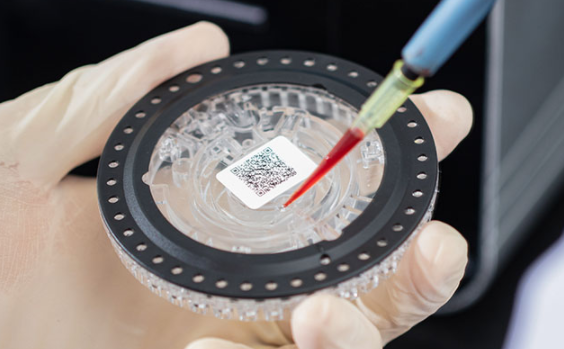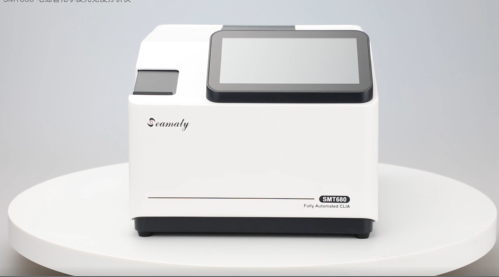Blood is composed of plasma, blood cells, genetic material (chromosomes and genes), etc. It is a red, opaque, viscous fluid that flows in the blood vessels and heart of the human body. The function of blood mainly includes two parts one is the function of blood cells and the other is the function of plasma, these functions have the function of transportation, regulation of body temperature, defense, regulation of body osmotic pressure and acid-base balance.
So what are the instruments to test the blood? What can be tested by these instruments? Take a look with
Seamaty!

-
1. Blood cell analyzer: blood cell analysis (blood routine)
-
2. Semi-automatic / fully automatic biochemical analyzer: biochemical tests (such as: liver function, kidney function, blood glucose and lipids ...)
-
3. Electrolyte analyzer: electrolyte detection: potassium, sodium, chloride, calcium
-
4. Blood coagulation instrument:blood coagulation items: PT, APTT, TT, FBI ...
-
5. Enzyme standard instrument: qualitative / semi-quantitative immunoassay: hepatitis B and half, hepatitis C antibody, HIV antibody...
-
6. Chemiluminescence analyzer: immuno-quantitative: T3, T4, TSH, hormones, tumor markers, etc...
-
7. Radioimmunoassay analyzer: the same as above, because of radioactive waste, has been gradually replaced by chemiluminescent immunoassay analyzer.
-
8. Blood gas analyzer: blood gas analysis: partial pressure of oxygen, partial pressure of carbon dioxide
-
9. Blood vertebrate viscometer: blood rheology: high, medium and low whole blood/plasma viscosity.
-
10. PH meter: blood pH: most blood gas analyzers also have this function
-
11. Blood sedimentation meter: used for blood sedimentation determination, one more blood sedimentation equation coefficient than manual method
-
12. Blood glucose meter: used for emergency terminal blood glucose detection
-
13. Immunoturbidimeter: used for immunological project detection: ASO, RF, CRP, IG (G, D, E, M, A), C3, C4...
-
15. Electrophoresis instrument, spectrophotometric scanner: for: serum protein electrophoresis, hemoglobin electrophoresis, isoenzyme analysis...
-
16. Gene amplification instrument, electrophoresis instrument, time-resolved fluorescence analyzer: molecular biology diagnosis: hepatitis B DNA detection, paternity test, etc.
-
17. Atomic absorption spectrophotometer: trace element detection
...
Other instruments and equipment.
-
Microscope: blood cell analysis
-
Centrifuge: Separation of serum
-
Water bath: simulate the human body 37 degrees environment
-
Incubator: blood bacterial culture, cell culture
...



